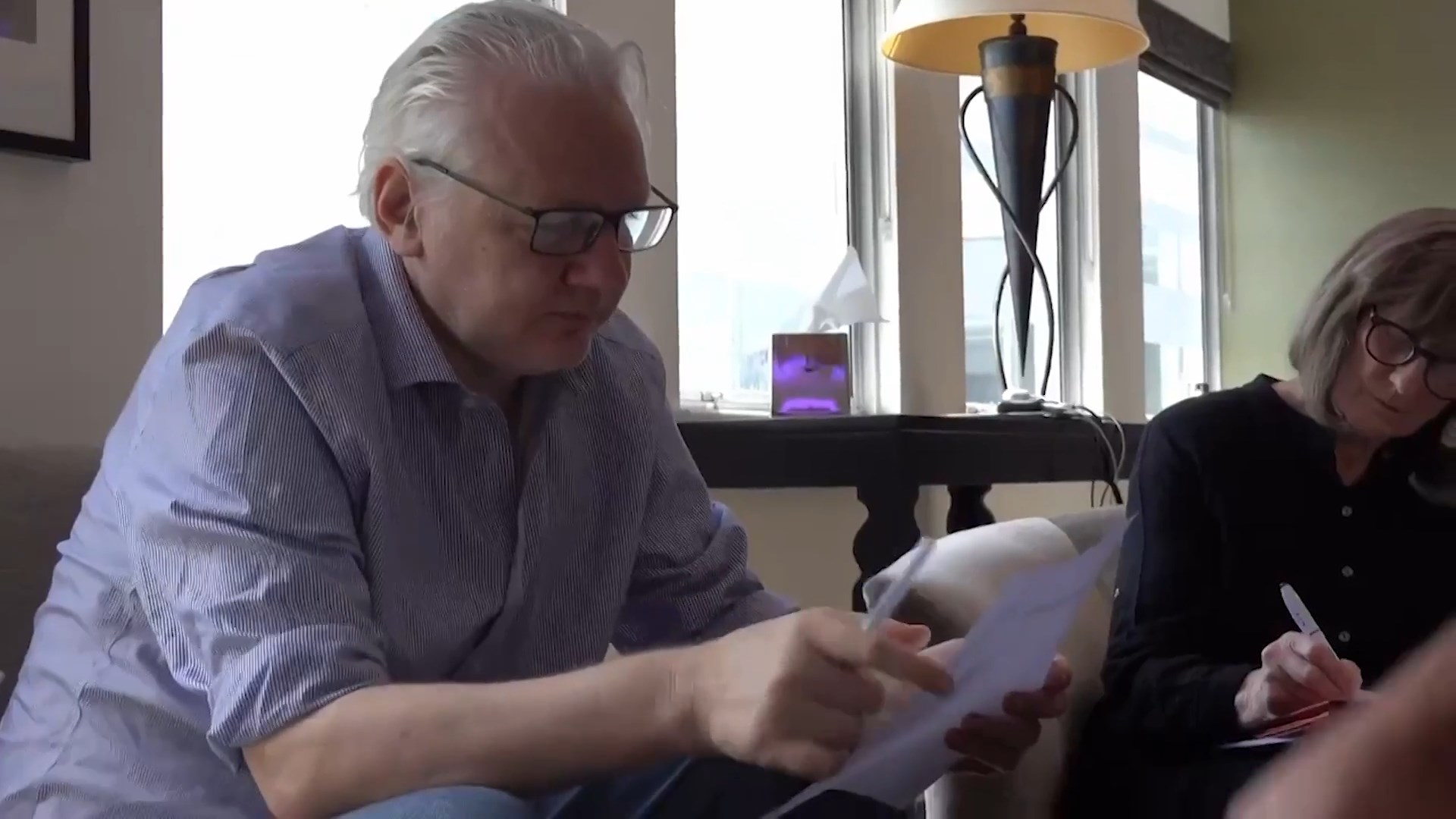
Julian Assange – man behind WikiLeaks' Collateral Murder video – leaves UK after plea deal

Julian Assange, whose WikiLeaks organisation released thousands of sensitive documents and other media from the wars in Iraq and Afghanistan, has left the UK after striking a plea deal with the US.
Assange is heading to the Mariana Islands, a US commonwealth in the Western Pacific, where he is due to appear at a plea and sentencing hearing, after which he will return to his home country of Australia.
The 52-year-old left the UK after being released from Belmarsh prison in London, where he had spent more than five years fighting extradition to the United States.
Before his detention in Belmarsh, he had been living in the Ecuadorean Embassy in London since 2012.
WikiLeaks said Assange was released on bail by the London High Court and taken to Stansted Airport, where he boarded a plane and left the UK after 1,901 days in pre-trial detention and pleading for political asylum.
Video shared online by WikiLeaks appear to show Assange, dressed in jeans and a blue shirt, being driven to Stansted before boarding the flight.
'Collateral Murder'
WikiLeaks released various pieces of media that it claimed exposed violations of human rights and civil liberties by various governments.
One of its most controversial leaks was a video of an airstrike carried out by two US Army AH-64 Apaches on 12 July 2007 in Baghdad, where insurgents had attacked a Humvee earlier in the day.
The leaked video, which WikiLeaks titled 'Collateral Murder', showed how – along with a number of armed men – two Reuters journalists and several civilians were killed by the Apaches.
Two children were injured in the attack.
Accusations of putting lives at risk
WikiLeaks also published thousands of US military field logs from the wars in Aghanistan and Iraq, plus diplomatic cables from the US and Saudi Arabia.
While its supporters champion WikiLeaks for exposing supposed violations of human rights and civil liberties, others say it has put lives at risk.
Press freedom group Reporters Without Borders wrote an open letter to Assange in August 2010 after WikiLeaks posted an article called Afghan War Diary 2004-2010 along with 92,000 leaked documents.
The group pointed out how the documents included the names of Afghans who had provided information to coalition forces.
The organisation said it approved of the release of the Baghdad Apache footage, saying this was in the public interest.
But it said of the Afghan document release: "Revealing the identity of hundreds of people who collaborated with the coalition in Afghanistan is highly dangerous.
"It would not be hard for the Taliban and other armed groups to use these documents to draw up a list of people for targeting in deadly revenge attacks."









